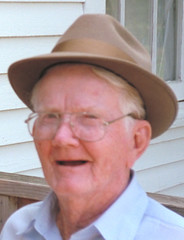My wife was good enough to go to see a production of Michael Frayn's
Copenhagen with me on Father's Day, at
Centre Stage South Carolina. She assigned me to report to our daughters on our attendance. (She also pointed out a grammatical mistake. Thanks!) I decided to do this as a blog post.
This play won the
Tony award (best Broadway play) for 2000. It was an amazing choice. There are only three characters, all playing dead people, on a bare stage. The plot is that the dead people,
Werner Heisenberg,
Neils Bohr, and Bohr's wife, Margrethe, are trying to understand a visit Heisenberg made to Bohr, in Copenhagen, in 1941, by discussing it, over and over. There's enough physics in the play that I once assigned the script for a physics class to read.
Based on this description, the play doesn't sound like much, but it is. There are many interesting aspects of our lives explored during
Copenhagen. Can we really ever understand ourselves? Is memory accurate? Why do we do things? What is the responsibility of a scientist for the application of that scientist's work? Do humans perceive reality, or determine it?
Bohr and Heisenberg were two of the greatest physicists of the past century. Heisenberg, like many others, studied under Bohr, in Copenhagen, Denmark, where Bohr lived. During, or before, World War II, many of the physicists of Europe, ethnic Jews, left. Heisenberg did not. He was in charge of Germany's nuclear physics program. He did go to see Bohr. Frayn's play dramatizes real uncertainty about why he went, and what they said to each other. The play works in Heisenberg's
Uncertainty Principle, which tells us that we cannot accurately measure both the momentum and position of sub-atomic particles, and Bohr's
Complementarity, which says that a sub-atomic particle can present itself as either a wave or a particle, depending on how it is measured. Although neither of these ideas was supposed to be about ordinary human knowledge, both of them have influenced our thinking about how we know, and what reality is. (So has Einstein's Theory of Relativity, which, again, was not supposed to be about moral absolutes, but about measuring movement of one physical system from a second one, but has influenced our thinking about moral absolutes*.)
Historians are
not clear about what happened during Heisenberg's meeting with Bohr, except that these people, who had been great friends until that time, had a falling out during this meeting. Frayn dramatizes this lack of clarity, having the actors suggest that Heisenberg was trying to use Bohr to find out about Allied work on nuclear fission (the atomic bomb), or to get Bohr's advice on the production of an atomic bomb, or that Heisenberg was trying to tell Bohr that he, Heisenberg, would try to deliberately hold back the German nuclear program, or that Heisenberg wanted Bohr's blessing for working on a project which might protect Heisenberg's country from destruction by the Allies, even though Bohr was in Denmark, occupied by the Germans.
Both men survived the war. Both were invited to give
Gifford lectures, a noted and long-running series of prestigious lectureships on natural theology. According to the play, Heisenberg was generally shunned by physicists after the war, even though, as Frayn put it, Heisenberg had not built a fission bomb which destroyed two cities--the scientists working for the Allies had.
The
Bulletin of the Atomic Scientists was founded by some of the scientists who helped produce fission bombs, questioning, after the fact, the impact of their scientific offspring. It is still discussing the implications of nuclear weapons, almost sixty years after their testing and use. One of its features is the Doomsday Clock, which represents how close we are to nuclear war. Currently, it is set at seven minutes to midnight.
There was a discussion after the play, and perhaps a third of the audience stayed for it. The leaders tried to center it on the moral responsibility of scientists for the application of their work, but it ranged further. My belief is that scientists are partly responsible for the forseeable consequences of the application of their work, and might be morally obligated, under some circumstances, to stop working in certain areas. The only time that I know of when that happened was at the
Asilomar Conference on recombinant DNA in 1975, and even in that case, most of the research which was questioned then is now being done, and perhaps all of it will be, including germ cell DNA engineering (changing the DNA of a sperm or egg, or cells which produce them).
My only contribution to the discussion was when a lady said that there were no absolute moral standards, in response to one of the leaders, who said that there are, and that they come from a supernatural God. I remarked that her statement was itself an absolute. The leader got her to agree that there was at least one thing (raping a two-year-old) that was absolutely wrong. The discussion pointed out that one argument for actually using the fission bomb was that the deaths caused would be far less than if the Japanese had been defeated more conventionally.
I thought about asking three questions. First, is a scientist responsible for how the public sees reality as a result of her work (see remarks on relativity, the uncertainty principle, and complementarity above)? Second, could, or should, such a play be written about the invention of gunpowder (my wife says guns--she's probably right) rather than the fission bomb? Third, the play brought out that Heisenberg was an accomplished musician. It didn't bring out, but it is true, that Bohr was a student of philosophy (as was Einstein, and most of the European physicists of the first half of the previous century). I don't believe that most scientists in the U. S., nor, probably, the rest of the world, are as versed in the humanities as those of Bohr's times. If this is true, is that dangerous? Shouldn't scientists know more than science?
My wife and I certainly were gripped by the play, and were glad we went. It wasn't merely entertainment.
* * * *
*Rebecca Goldstein has recently
written on how the work of Einstein, and of Kurt Gödel, a great mathematician, both of them fierce believers in an objective reality, was used to argue that there is no such thing.









